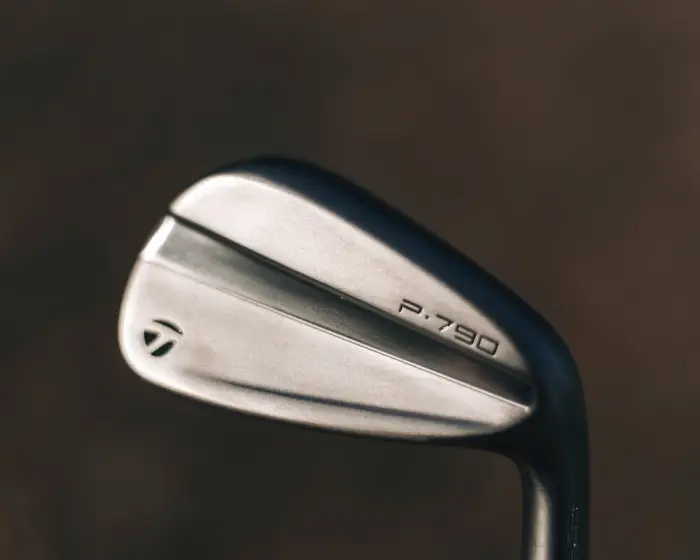Have you ever wondered about the weight of a golf club? How much does a golf club weigh? It may seem like a minor detail, but the weight of your golf club can actually have a significant impact on your game. Whether you’re a beginner or a seasoned golfer, understanding the weight of your club is key to improving your swing and achieving greater distance and accuracy.
In order to choose the right golf club for your game, it’s important to understand how weight affects your swing and overall performance. From drivers to putters, each club has a specific weight that can impact your power, control, and consistency on the course. By knowing how much a golf club weighs and how it affects your game, you can make informed decisions when it comes to selecting the right equipment for your unique playing style. Let’s delve into the world of golf club weights and discover how they can enhance your performance on the course.
The Average Weights of Different Types of Golf Clubs
Woods Golf Club Weights
Woods are the lightest clubs in a golfer’s bag, typically weighing between 275 to 310 grams (9.7 to 10.9 ounces). These clubs, including drivers and fairway woods, are designed for long-distance shots off the tee or fairway. Their lightweight construction allows golfers to generate maximum clubhead speed, translating into greater distance. The lighter weight also makes the launch angle higher, which helps players get their shots to go in the best way.
Irons Golf Club Weights
Irons are slightly heavier than woods, with an average weight ranging from 270 to 290 grams (9.5 to 10.2 ounces). Irons are versatile clubs that come in different numbered forms, each made for a certain distance. Because irons are heavier than woods, players can control and hit the ball more accurately. This makes them good for a variety of shots, such as chipping, approach shots, and more.
Putters Golf Club Weights
Putters are the heaviest clubs in a golfer’s bag, typically weighing between 330 to 360 grams (11.6 to 12.7 ounces). Their heavier weight is intentional, as putters are primarily used on the greens for precision and accuracy. The extra mass helps stabilize the putter during the stroke, reducing unwanted wrist action and promoting a smoother, controlled pendulum motion, essential for sinking putts.
Wedges Golf Club Weights
Wedges are the heaviest among golf club types, often weighing around 300 to 330 grams (10.6 to 11.6 ounces). These clubs, including pitching, sand, and lob wedges, are designed for short-game finesse, offering maximum control and spin around the greens. The additional weight aids in maintaining stability and control when executing delicate shots, such as chips, pitches, and bunker escapes.

How Club Weight Affects Your Golf Game
The weight of golf clubs has a big effect on a player’s game, influencing many parts of their ability, such as:
Impact on Swing Speed and Distance
- Club weight directly affects a golfer’s swing speed. Lighter clubs, such as those with graphite shafts, enable players to generate higher clubhead speeds. This, in turn, translates to increased distance off the tee, making lighter clubs like drivers and fairway woods advantageous for long shots.
- Heavier clubs, such as irons with steel shafts, provide better control but may sacrifice some swing speed. Golfers often use these clubs for precision shots and approaches to the green.
Control and Stability in Different Shots
- Lighter clubs are easier to move around with and help players keep their balance. This makes them good for shots that need finesse and touch, such as chipping and putting.
- Heavier clubs offer stability and control, helping golfers maintain a consistent swing plane and reduce the risk of mishits. This is particularly valuable for shots that demand accuracy and distance control, such as approach shots and bunker shots.
The Role of Club Weight in Shot Accuracy
- Accuracy is a critical component of successful golf, and club weight is a key factor in achieving it. Lighter clubs may result in more erratic swings and less precision, especially for players with fast swings. However, they can be advantageous for players who need to add distance to their game.
- Heavier clubs provide a more controlled and predictable swing, aiding in shot accuracy. This is especially valuable when navigating challenging course conditions or tight fairways, where precision is most important.

How to Pick the Right Club Weight for Your Style
Selecting the right golf club weight is essential for optimizing your performance on the course. Here are some considerations to help you match club weight with your style:
Matching Club Weight with Skill Level and Swing Speed
Beginner Golfers
If you are a beginner, it’s often recommended to start with lighter clubs, as they are easier to control and can help you develop a consistent swing. Graphite shafts and lighter irons can be a good choice to begin with. They offer forgiveness and help compensate for slower swing speeds while allowing you to focus on fundamentals.
Intermediate Golfers
Intermediate players with some experience can experiment with a wider range of club weights. Depending on your strengths and weaknesses, you may prefer a mix of lighter and slightly heavier clubs. This customization can help fine-tune your game as you work on improving your skills.
Advanced Golfers
Advanced players typically have greater control over their swing and can benefit from a more precise selection of club weights. They may prefer heavier irons for better control and accuracy, while opting for lighter woods to maximize distance off the tee. Advanced players often invest in custom-fitted clubs to tailor the weight distribution to their specific preferences.
Tips for Testing and Selecting the Right Club Weight
Club Fitting
Consider getting a professional club fitting. A club fitting session can provide valuable insights into your swing dynamics and help determine the ideal club weight and shaft type for your game.
Trial and Error
Experiment with different clubs on the driving range or during practice rounds. Pay attention to how each club feels during your swing and the results it produces in terms of distance and accuracy.
Consider Course Conditions
Think about the course conditions you frequently encounter. If you play on a course with tight fairways and challenging rough, you might prioritize accuracy and control by opting for slightly heavier clubs.
Listen to Your Body
Pay attention to how your body feels during and after a round. If you experience fatigue or discomfort using certain clubs, it may be an indication that they are not well-suited to your swing or physical capabilities.
Consult with a Pro
Seek advice from a golf professional or coach who can assess your game and provide guidance on club weight selection.

Customizing Golf Club Weight: Techniques and Benefits
Customizing golf club weight can be a game-changing technique to tailor your equipment to your specific needs and preferences. Here are some techniques and benefits of customizing golf club weight:
Adjusting Clubhead Weight with Lead Tape
- Lead tape is a commonly used method to customize clubhead weight. Adding or removing lead tape to the clubhead allows you to fine-tune the overall weight and balance of the club.
- Benefits: This customization can help optimize the feel and performance of your clubs. For example, you can add lead tape to the clubhead’s heel or toe to correct a slice or hook, or you can adjust the weight distribution for improved distance and control.
How Changing Grips Affects
- The type and size of grips on your clubs can also affect the overall weight and feel of the club. Grips come in varying materials, thicknesses, and textures.
- Benefits: A thicker grip can add weight to the club, potentially improving control and reducing hand fatigue. On the other hand, a thinner grip can reduce overall weight, aiding in increased clubhead speed. Additionally, the texture of the grip can influence your ability to maintain a secure hold on the club.
Exploring Different Clubhead Designs for Customization
- Golf club manufacturers offer various clubhead designs within the same club category (e.g., drivers, irons) that may have differences in weight distribution and center of gravity.
- Benefits: By experimenting with different clubhead designs, you can find one that aligns with your swing and shot preferences. For example, a driver with a low and forward center of gravity may help reduce spin and provide more distance, while one with a higher center of gravity may enhance control and accuracy.
FAQs
Q: Why does the weight of a golf club matter?
A: The weight of a golf club matters because it directly affects your swing, control, and performance on the golf course. The right club weight can help you achieve the right balance between distance and accuracy, while the wrong weight can lead to swing issues, fatigue, and inconsistency in your game.
Q: How do I know if a golf club is too heavy or light for me?
A: Determining if a golf club is too heavy or light for you involves considering factors like your swing speed, physical strength, and personal preferences. A club may be too heavy if it causes fatigue or leads to inconsistent swings. Conversely, a club may be too light if you struggle to control it or lack the necessary power. Experimenting with different club weights and seeking professional advice through club fitting can help you find the right balance.
Q: Can I adjust the weight of my golf clubs at home?
A: You can make some adjustments to your golf club weight at home, such as adding lead tape to the clubhead or changing grips. However, more significant modifications, like altering the shaft or clubhead, should be done by a professional club fitter or club technician to ensure the club remains within legal limits and performs optimally.
Q: Does the weight of a golf club affect its durability?
A: The weight of a golf club does not directly impact its durability. Golf clubs are designed to withstand the forces generated during a golf swing. However, factors like the quality of materials, construction, and how well you take care of your clubs can affect their durability. It’s essential to regularly inspect and maintain your clubs to ensure they remain in good condition for a long time.







